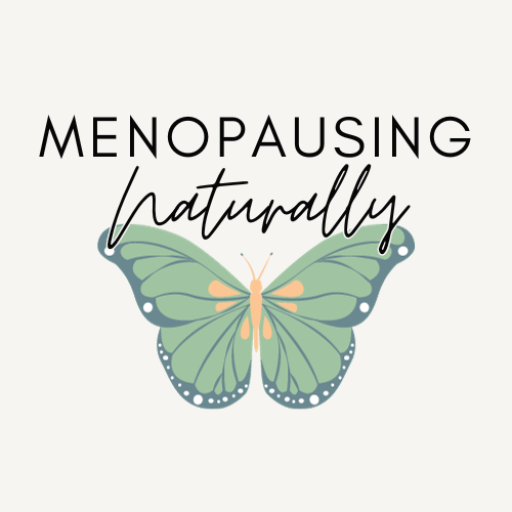Diet and Lifestyle Changes: How To Complement Wild Yam Cream For Menopause Relief
Introduction
Wild yam cream is a popular natural remedy for alleviating menopausal symptoms such as hot flashes, night sweats, and mood swings. To enhance the effectiveness of wild yam cream, incorporating specific diet and lifestyle changes can be highly beneficial. This article explores various dietary and lifestyle modifications that can complement the use of wild yam cream, helping you manage menopause symptoms more effectively.
Understanding Menopause and Wild Yam Cream
Menopause marks the end of a woman’s reproductive years and is accompanied by a decline in hormone levels, particularly estrogen and progesterone. Wild yam cream, containing the active ingredient diosgenin, can mimic estrogen in the body and help balance hormones naturally. However, to maximize the benefits of wild yam cream, a holistic approach that includes diet and lifestyle changes is recommended.
Dietary Changes to Support Menopause Management
1. Increase Phytoestrogen-Rich Foods
Phytoestrogens are plant compounds that can mimic the effects of estrogen in the body, helping to balance hormone levels.
- Sources: Soybeans, tofu, tempeh, flaxseeds, sesame seeds, and whole grains.
- Benefits: These foods can help reduce hot flashes, improve bone health, and support overall hormonal balance.
2. Boost Calcium and Vitamin D Intake
Menopausal women are at an increased risk of osteoporosis due to decreased bone density. Calcium and vitamin D are crucial for bone health.
- Sources of Calcium: Dairy products (milk, cheese, yogurt), leafy green vegetables (kale, broccoli), and fortified foods (orange juice, cereals).
- Sources of Vitamin D: Fatty fish (salmon, mackerel), fortified foods, and adequate sunlight exposure.
- Benefits: These nutrients help maintain strong bones and reduce the risk of fractures.
3. Incorporate Healthy Fats
Healthy fats, particularly omega-3 fatty acids, are essential for reducing inflammation and supporting heart health.
- Sources: Fatty fish (salmon, sardines), flaxseeds, chia seeds, walnuts, and olive oil.
- Benefits: Omega-3 fatty acids can help reduce hot flashes and improve cardiovascular health.

4. Eat a Balanced Diet Rich in Fruits and Vegetables
A diet rich in fruits and vegetables provides essential vitamins, minerals, and antioxidants.
- Benefits: These nutrients support overall health, reduce inflammation, and help manage weight.
5. Stay Hydrated
Drinking plenty of water is crucial for overall health and can help manage menopausal symptoms.
- Benefits: Staying hydrated helps reduce the severity of hot flashes and prevents dryness of the skin and mucous membranes.
Lifestyle Changes to Enhance Menopause Symptom Management
1. Regular Exercise
Engaging in regular physical activity is one of the most effective ways to manage menopausal symptoms.
- Types of Exercise: Weight-bearing exercises (walking, jogging), strength training, yoga, and aerobic activities.
- Benefits: Exercise helps maintain a healthy weight, improves mood, boosts energy levels, supports bone health, and reduces the frequency and severity of hot flashes.
2. Stress Management
Stress can exacerbate menopausal symptoms. Implementing stress-reducing techniques can help manage these symptoms more effectively.
- Techniques: Meditation, deep breathing exercises, yoga, tai chi, and mindfulness practices.
- Benefits: Reducing stress helps improve mood, enhance sleep quality, and lower the incidence of hot flashes.
3. Adequate Sleep
Quality sleep is essential for overall health and well-being, especially during menopause.
- Tips for Better Sleep: Establish a regular sleep schedule, create a relaxing bedtime routine, avoid caffeine and heavy meals before bedtime, and ensure a comfortable sleep environment.
- Benefits: Better sleep can reduce irritability, improve mood, and help manage hot flashes and night sweats.
4. Limit Alcohol and Caffeine
Alcohol and caffeine can trigger hot flashes and disrupt sleep.
- Recommendations: Limit the intake of alcohol and caffeine, especially in the evening.
- Benefits: Reducing these substances can help decrease the frequency and intensity of hot flashes and improve sleep quality.
5. Quit Smoking
Smoking is linked to numerous health issues and can worsen menopausal symptoms.
- Benefits: Quitting smoking improves overall health, reduces the risk of cardiovascular disease and osteoporosis, and can decrease the severity of hot flashes.
How to Integrate Wild Yam Cream with Diet and Lifestyle Changes
To maximize the benefits of wild yam cream, follow these steps:
- Consult with a Healthcare Provider: Before starting any new supplement or making significant lifestyle changes, consult with a healthcare provider to ensure they are appropriate for your individual health needs.
- Apply Wild Yam Cream as Directed: Use the cream consistently and as directed on the product label or by your healthcare provider.
- Adopt a Balanced Diet: Incorporate the dietary changes mentioned above to support hormonal balance and overall health.
- Engage in Regular Physical Activity: Aim for at least 30 minutes of moderate exercise most days of the week.
- Practice Stress Management Techniques: Incorporate stress-reducing activities into your daily routine.
- Ensure Quality Sleep: Follow the tips for better sleep to enhance your overall well-being.
- Monitor Your Symptoms: Keep track of your menopausal symptoms and adjust your diet and lifestyle as needed.
Conclusion
Complementing the use of wild yam cream with specific diet and lifestyle changes can significantly enhance its effectiveness in managing menopausal symptoms. By adopting a balanced diet rich in phytoestrogens, calcium, vitamin D, and healthy fats, and incorporating regular exercise, stress management techniques, and quality sleep, you can improve your overall health and well-being during menopause. Always consult with a healthcare provider before making significant changes to your diet or lifestyle to ensure they are suitable for your individual needs.





